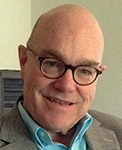Theoretical Frameworks for Designing Study Abroad Courses in Religious Studies
Study abroad experiences for students can range from the short-term educational travel with an academic focus to semester- or year-long immersion experiences that provide students with an opportunity for cultural integration. The student learning outcomes for the variety of courses along the continuum will differ significantly. But in each case, study abroad courses provide a context and opportunity for faculty to address in a powerful way some intangible learning outcomes that exist in religious studies courses. Such transformative learning experiences, however, may not result without careful course design by faculty who seek to have students engage different cultures in deep and complex ways. Without purposeful design, the study abroad may be satisfying to students, but become little more than a glorified vacation. In this brief essay, I want to suggest some theoretical frameworks that I have used to design short-term study abroad courses.
Intersectionality and an Awareness of Cultural Identity and Location
Intersectional analysis, originally developed by feminist scholars of color, provides a framework to interrogate constructions of identity and structures of power, and it advocates for social justice issues. Amartya Sen, an Indian native who won the 1998 Nobel Prize in economics, writes about the dangers of what he calls “a ‘solitarist’ approach to human identity.” He argues that with this approach, people operate with the “odd presumption that the people of the world can be uniquely categorized according to some singular and overarching system of partitioning” (Sen, xii). Such an approach leads to a misunderstanding of almost everyone in the world since we know ourselves to be members of a variety of groups. Each individual is, in a sense, a “multi-cultural” self with multiple identities who participates in a number of different cultural frameworks: race, class, social location, gender, sexual orientation, and religious commitments to name just a few possible groups. Perhaps it might be better to speak of this phenomenon in terms of diversity of identity or multilayered identities and consider the different ways in which these identities are configured, because these configurations of different identities can change in an instant as a person’s personal identities intersect with social realities and history. Often the various dimensions of a person’s identity lie unexamined, but the experience of being in a different cultural location in a study abroad experience brings to the forefront and questions identities that are assumed and experiences which are perceived to be normative and universal.
During on-campus activities before our study abroad trip, I regularly ask students to engage in a “Who Am I?” exercise which asks them to map their identities. Sometimes this has been done by asking students to move physically to different places in the room in response to a variety of different prompts to see the different people standing with them. Other times, I ask them to prepare a list of ten words that describe who they are. Once the list is complete, students are asked to cross off the list the words they can most easily discard until there is only one word left on the list (Jones and Abes, 80). They find it increasingly difficult to cross off words. Once we are overseas, however, this exercise is repeated after students have the experience of disorientation in a new place. For example, the first day of a short-term course in Europe on global citizenship, students are “turned loose” in the Viktualienmarkt in Munich for an hour for lunch. Since most students who have traveled with me do not know German, they find this a disorienting experience even as they can see the different options for purchasing food at the stands in the open air market. Invariably, when I repeat the “Who Am I?” exercise after this experience, national identity is now foregrounded in student awareness, which then leads to a fruitful discussion of how students may benefit from a position of privilege (e.g., religious, racial, linguistic) back in the States of which they are not even aware.
Intellectual and Ethical Development Theories
A few years ago when I was teaching a world religions course during the college’s three-week May term, one student commented, after a visit to the Central Mosque in London and discussion about Islam with the educational specialist who was a recent college graduate, how much he appreciated not only learning about different religions, but learning from perspectives that were not exclusively American. In this case, study abroad with visits to a variety of religious sites in England provided an opportunity to discuss religion not in an essentialist way as if it were a disembodied phenomenon. Rather, students had a chance to explore how religion is always rooted in particular social contexts and interacts with other aspects of identity even as it is part of a wider human experience.
The diversity of perspectives found in the experience which this student found helpful, however, can also be threatening to other students. Cherished notions of religious truth and received knowledge about the world can be challenged when students travel abroad. According to developmental psychologists, every person has an “epistemological theory”—some way of construing the nature of truth. Although the names of the stages change depending upon which theorist one is reading, most cognitive psychologists group the changes into four major identifiable stages. Marcia Baxter-Magolda is typical with her four stages or “domains” labeled “absolute knowing, transitional knowing, independent knowing, and contextual knowing.” She discovered that most students enter college as dualists (to use William Perry’s term denoting students’ viewing knowledge in black and white, right and wrong terms). Studying abroad, then, with its introduction of multiple perspectives on topics, while threatening, can also provide a rich opportunity to help students develop more complex understanding of the nature of knowledge. Faculty who teach study abroad courses can use intellectual development theories not only in the design of their academic experiences to insure that students are exposed to diversity in the course content, the theories can also provide a helpful heuristic lens in understanding the difficulties some students may experience in the diverse cultural contexts.
Experiential Learning Theory
At its heart, study abroad is a form of experiential learning. David Kolb has expounded a theory of experiential learning which I have found very helpful when designing study abroad courses. The four stage cycle represents a holistic approach to learning that moves back and forth between the poles of experience-conception and reflection-experimentation (Passarelli and Kolb). A key component that I require in every study abroad course that I teach is an academic journal because of the opportunity it provides for students to reflect and move to abstract theorizing of their learning experiences. The journal includes notes from readings and lectures as well as observations, questions, and speculations. Study abroad experiences can be powerful learning experiences for students because they engage students in a variety of sensory experiences (e.g., smell, taste, sight, emotions) (Zull).
But if faculty do not provide students an opportunity to reflect on the meaning of the experience, some of the power of the learning experience may be dissipated. So, for example, I frequently include a unit on ritual when teaching a religion course, and then students have the opportunity to attend a worship service in the host country while traveling abroad (these have been as varied as Catholic mass in Austria to a Protestant service in China). In these cases where students don’t know the language of the service, they are asked to observe and reflect on how and what is communicated by means of the ritual actions. When I read their reflections in journals after such engagement with ritual, they frequently have a deeper understanding of the way that ritual actions can communicate when they experience it with sight and smell without the benefit of accompanying language than they do when ritual is discussed in a classroom back on campus. In a course on pilgrimage when students are walking a portion of the Camino de Santiago in northern Spain, they are asked to construct a simple ritual for themselves as they walk and in journals explain why they chose this particular ritual.
Conclusion
The theoretical frameworks that I have touched upon in this article can be applied to a variety of study abroad courses in religion. Students come to our classes with high interest in exploring concerns about values and spiritual development even if we as faculty don’t include such learning outcomes as high on our list (Walvoord, 20–21; 35ff). By being intentional in the design of our study abroad courses, however, it is possible for faculty to be a partner to students as they struggle with profound questions (Barbour, 93–94).1
Notes
1 Barbour's article is the response to a helpful series of essays in Teaching Theology and Religion 18.1.
Resources
Barbour, John. 2015. “’Oh Events’ for the Professor: Studies and Stories of Religious Studies Abroad.” Teaching Theology and Religion 18 (1): 88–96.
Baxter-Magolda, Marcia. 1992. Knowing and Reasoning in College: Gender Related Patterns in Students’ Intellectual Development. San Francisco: Jossey-Bass.
Jones, Susan R. and Elisa S. Abes. 2013. Identity Development of College Students. Advancing Frameworks for Multiple Dimensions of Identity. San Francisco: Jossey-Bass.
Passarelli, Angela M. and David A. Kolb. 2012. “Using Experiential Learning Theory to Promote Student Learning and Development in Programs of Education Abroad.” In Student Learning Abroad. What Our Students are Learning, What They’re Not, and What We can Do About It, 137-61. Sterling, VA: Stylus.
Sen, Amartya. 2006. Identity and Violence: The Illusion of Destiny. New York & London: W. W. Norton.
Walvoord, Barbara. 2008. Teaching and Learning in College Introductory Religion Courses. Malden, MA: Blackwell.
Zull, James E. 2012. “The Brain, Learning, and Study Abroad.” In Student Learning Abroad: What Our Students Are Learning, What They’re Not, and What We Can Do About It, edited by Michael Vande Berg, Kris Hemming Lou, and R. Michael Paige, 162–187. Sterling, VA: Stylus.
 David B. Howell is professor of religion and dean of the School of Arts and Humanities at Ferrum College in Ferrum, Virginia. With a DPhil in theology from the University of Oxford, Howell has been teaching short-term study abroad courses in religion since 1990. These courses have ranged from one-week spring break academic experiences embedded in the middle of a semester course to eight-week-long summer programs, from service-learning courses in China and Mexico to archaeological digs in Israel. Howell is the author of two books in biblical studies, and his research interests and service in recent years has focused on the scholarship of teaching and learning.
David B. Howell is professor of religion and dean of the School of Arts and Humanities at Ferrum College in Ferrum, Virginia. With a DPhil in theology from the University of Oxford, Howell has been teaching short-term study abroad courses in religion since 1990. These courses have ranged from one-week spring break academic experiences embedded in the middle of a semester course to eight-week-long summer programs, from service-learning courses in China and Mexico to archaeological digs in Israel. Howell is the author of two books in biblical studies, and his research interests and service in recent years has focused on the scholarship of teaching and learning.
Image: West Virginia University 2014 Study Abroad Students. Tetsugaku-no-Michi, Kyoto, Japan, 2014. Photo Credit: Alex Snow

